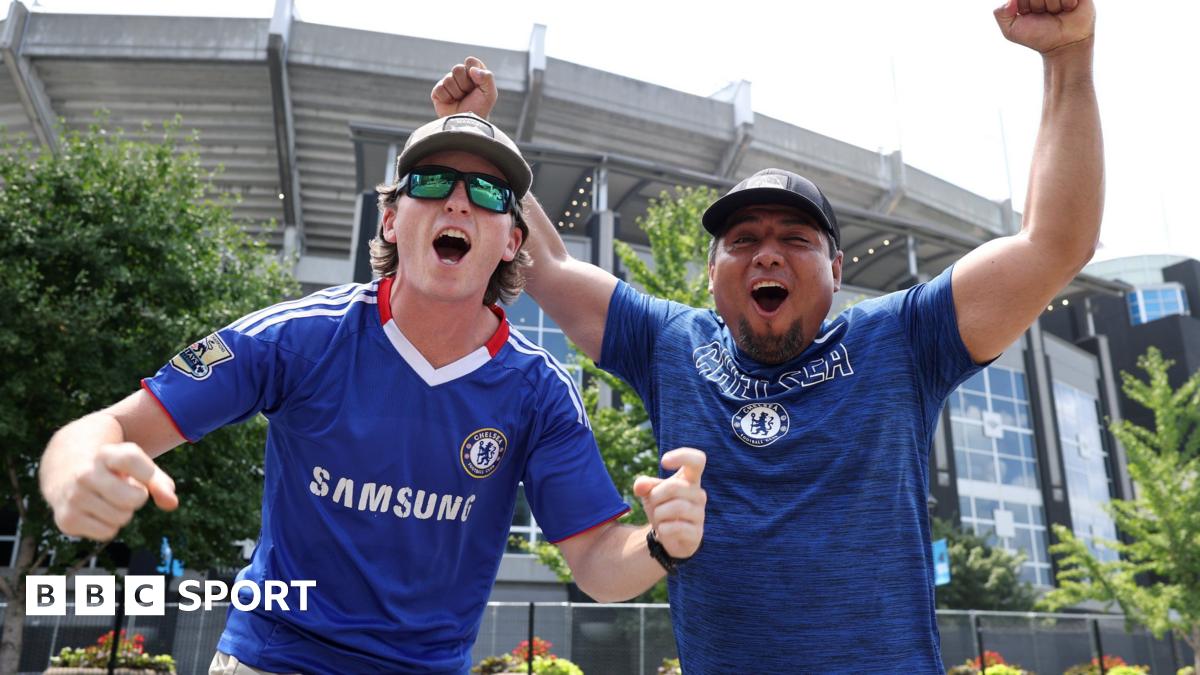Chelsea's Chaotic Club World Cup Journey: A Rush Against Time and Heat

"Chelsea's Chaotic Club World Cup Journey: A Rush Against Time and Heat"
As the clock ticked towards the late hours in Charlotte, North Carolina, Chelsea's preparation for their Club World Cup last-16 clash against Benfica seemed like a frantic race against time. The Blues' journey to this point, marked by a whirlwind of logistical challenges and unexpected turns, paints a vivid picture of modern football's relentless pace.
Chelsea's arrival in Charlotte was anything but leisurely. The team had just flown in from their training base on the sun-drenched shores of Miami Beach, a location pre-booked with the hopeful anticipation of topping their group. However, fate had a different plan in store. A 2-1 defeat to Flamengo dashed those hopes, forcing Chelsea to settle for a second-place finish in Group D, despite commendable victories against Los Angeles FC and ES Tunis.
This unexpected turn of events set the stage for a Champions League-style matchday, characterized by a whirlwind schedule. The Blues landed in Charlotte for a fleeting overnight stay, with their pre-match press conference activities crammed into a tight window at 20:00 local time, equivalent to 01:00 BST. The Bank of America Stadium, a venue known for its electrifying atmosphere, awaited them just hours later.
Nizaar Kinsella, a seasoned football news reporter for BBC Sport, captured the essence of this frenetic preparation. He noted the rushed nature of Chelsea's press conference, featuring head coach Enzo Maresca and three players. The sense of urgency was palpable, as the team navigated the logistical complexities of a post-season tournament in the sweltering heat of the American South.
Chelsea's strategy for managing this challenging tournament is as much about survival as it is about success. The plan is to remain in Miami, a city synonymous with vibrant energy and relentless heat, before potentially relocating to New York should they advance to the semi-finals and beyond. This approach reflects the team's pragmatic attempt to balance the demands of competition with the physical toll of playing in such conditions.
The Blues' journey through the Club World Cup is emblematic of the broader challenges faced by elite football clubs in the modern era. The relentless travel, the pressure to perform, and the need to adapt swiftly to changing circumstances are all part of the narrative. As Chelsea's players step onto the pitch, they carry with them not just the hopes of their fans but also the weight of a meticulously planned yet inherently unpredictable journey.
In this high-stakes environment, Chelsea's resilience and adaptability will be tested to the fullest. As the tournament unfolds, the team's ability to navigate these challenges will determine how far they can go in their quest for glory.
🔮 Fortellr Predicts
Confidence: 85%
Chelsea's accelerated logistical preparations for the Club World Cup, amid the challenging conditions of Miami and Charlotte, set a complex stage for both immediate and extended strategic football management decisions. The team's decision to conduct last-minute press activities and player engagements in Charlotte overnight suggests an adaptive strategy to maximize media exposure while managing player fatigue. Historically, such rushed schedules during international tournaments have correlated with suboptimal player performance, often leading to early exits. The narrative from similar scenarios indicates that Chelsea may face performance challenges, potentially leading to premature elimination from the tournament despite their efforts to minimize such risks by planning successive strategic stays in Miami and New York. Meanwhile, broader implications include possible disruptions to Chelsea’s post-tournament plans, given the impact of their Club World Cup journey on player fatigue and morale. This might necessitate adjustments in season preparation for upcoming league duties and potential player transfers to bolster team resilience. Each stage of their journey reflects reactive planning in the face of unexpected tournament conditions, which could cascade into more significant operational changes both at the management and coaching levels. Additionally, the ripple effects might include increased scrutiny of UEFA's scheduling protocols, which may prompt discussions around player welfare in intense post-season tournaments. Key stakeholders like club management and international football governing bodies might face systemic pressures to refine logistical and scheduling frameworks to accommodate the rising demands on players participating in global events like the Club World Cup.